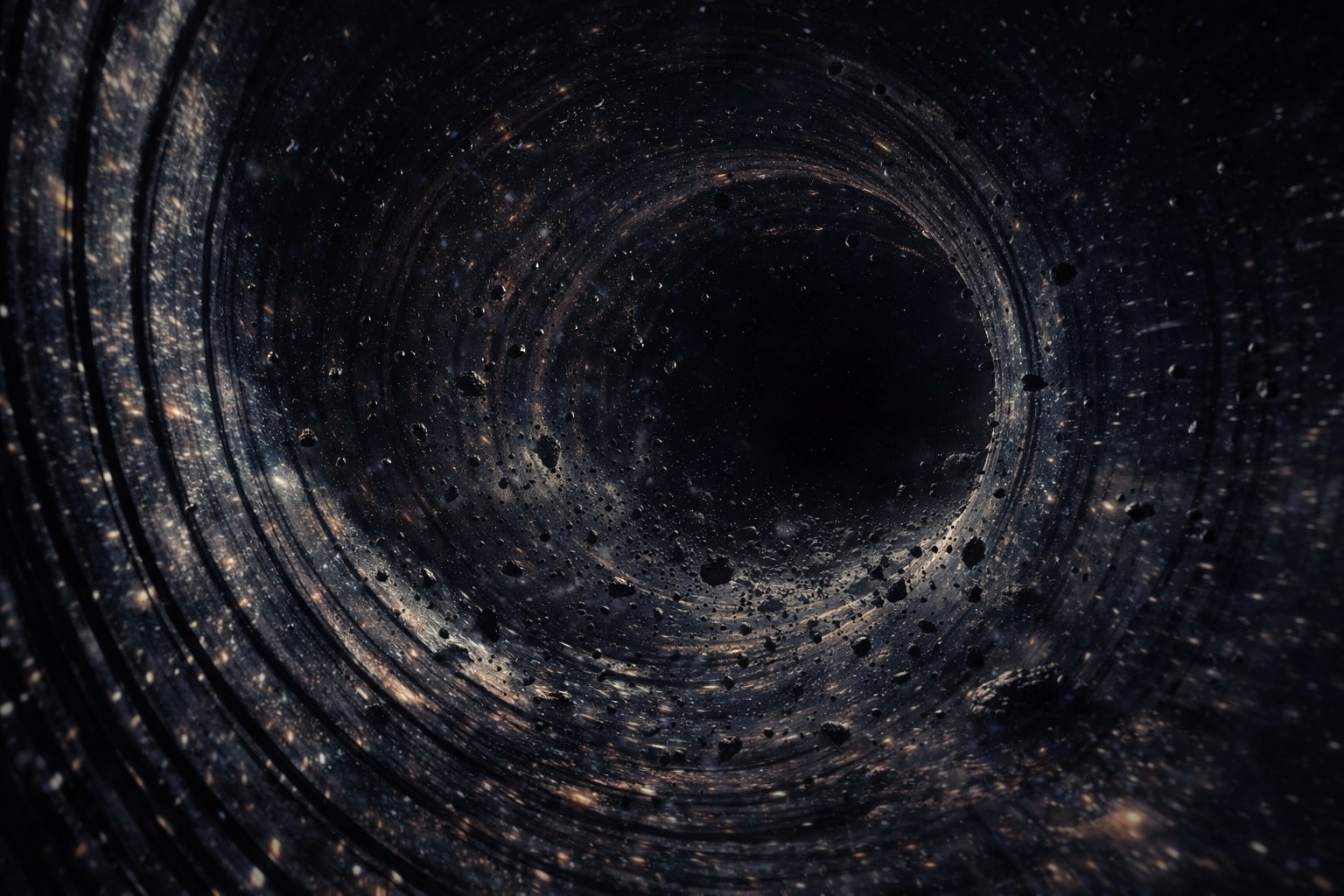HUSAM AHMED SHAFEEQ
In the numerous conversations I’ve had with atheists over the past few years, their search for God has almost always been confined to methods that apply to physical objects. For them, God’s existence can be conceded only if He can be observed or detected in a tangible way.
Empirical observation, they insist, is the only path to attain certainty about anything. After all, why should the scientific method of experimentation with the proven track record of countless discoveries and inventions be bypassed when it comes to investigating God?
At a primary glance, this may sound like a fair demand. However, upon the slightest reflection, we realise that to demand to physically observe God would imply that He should relinquish His very Godhead, for it is logically binding that the Creator of this physical universe transcends all constraints of physicality.
But the deeper fallacy of this claim lies in the fact that it is only a refurbished version of an old, long-rejected argument, presented as new—like a corpse dressed up to look alive.
The zombie of a dead argument
Centuries ago, perhaps, God’s invisibility might have qualified as a compelling argument against His existence. The Quran also records the account of the people of Prophet Mosesas, who declared that they would not believe in him until they saw God with their own eyes.[1]

However, in today’s age of science, where countless realities have been discovered that lie completely outside the purview of our sense of vision, this flawed argument is disowned by even the most commoners among the atheist demography.
Nevertheless, the modern demand to detect God physically is as void of sense as this ancient argument, but is only restructured with upgraded illustrations, while the central principle remains as lifeless as its antecedent.
Visualism to empiricism: One fallacy replaced by another
Obviously, we do not see everything. Nor does any single sensory faculty grant us the knowledge of all that exists. It is for this reason that we are endowed with different senses, each complementing and compensating for the limits of the others.
Yet, what we often overlook is the fact that there are truths that dwell even outside the reach of all our physical senses combined.
It would indeed be ludicrous if I demanded to hear radio waves with my naked ears, or to see electromagnetic rays with my naked eyes, or to perceive gravity with any of my five physical senses. At the same time, it would be even more preposterous for me to deny or even doubt the existence of these things.
All this is embedded in a simple universal fact that not everything is known through our natural senses. In fact, the more foundational the secrets of the universe we seek to unravel, the more elusive they become to our sensory faculties.
Yet, when it comes to investigating the Prime Force that is behind all the forces that govern the whole universe, this principle is conveniently ignored, expecting to find Him with the dim lantern of physical observation.
The ‘limitless’ scope of human inventions?
Many sceptics may be quick to respond here, saying: “the realities inaccessible to our natural senses become detectable through the extensions of those senses.”
In his quest to explore the unknown, they argue, man has invented instruments to push beyond the limitations of his natural faculties. Through the microscope, we behold the wonders of the microbial world; through the telescope, we traverse cosmic distances and witness the marvels of distant worlds.
In the same way, radio waves—though inaudible to our ears—are captured and translated into sound by radio receivers; electromagnetic radiation—lying outside the visible spectrum—is perceived through devices such as infrared cameras and X-ray machines; and gravitational waves—imperceptible to our physical senses—are detected through exquisitely sensitive instruments like LIGO.
Physical detectability, hence the argument goes, is and must be the ultimate criterion to determine the existence of anything and everything.
Or is it really so?
A world hidden forever
In their blind zeal to deny God’s existence, atheists end up dismissing the very principles of reason, logic, and—ironically enough—science itself. By reducing the scope of evidence to empirical data, they violate the central essence of science: that the method of inquiry should be in accordance with the object under investigation.

A microscope would be of no help in studying distant galaxies; a telescope would prove inadequate to examine the intricacies of a living cell; a barometer would not assist in measuring the magnitude of earthquakes; and a seismometer would be incapable of predicting weather.
But more importantly, there are things that exist completely beyond the reach of even the most sophisticated devices ever designed to expand the scope of human perception. Entities such as dark matter and dark energy remain empirically undetected, yet their existence is established through their perceived effects in the universe. Similarly, there are regions of the cosmos that are, by their very nature, eternally unobservable to man, hidden forever beyond the cosmic horizon.
Interestingly, these realities—as exotic as they may sound—are anything but rare. Dark matter and dark energy make up nearly 95 percent of the observable universe.[2] The unobservable portion of the cosmos is estimated to be around 250 times vaster than what is ever accessible to us.[3]
That is to say, in this corporeal ensemble of physical dimensions we call the universe, empirical observability is not the rule but the exception. And this raises an all-important question: if physical detection cannot serve as a reliable yardstick to confirm the existence of the overwhelming majority of this physical universe, then what about non-physical realities? What faculty should we employ to determine their existence?
Human mind: Laboratory of the intangible
The ancient proponents of atheism may be derided by their modern-day peers for neglecting all other sensory faculties and relying solely on vision. Yet, knowingly or unknowingly, the New Atheists of today, who stubbornly insist on physically detecting God, are guilty of committing the very same intellectual folly. In fact, their error seems to even surpass that of their predecessors.

While the ancients undermined the role of the senses other than vision, the modern empiricists have discarded an even more effective and the most fundamental faculty ever endowed to man—the human mind.
The faculty of mind is far superior to all other sensory faculties combined. It is the very power that makes reason, logic, and science possible in the first place. It is through the mind that we interpret data, identify patterns, form concepts, and—above all—recognise truth. Even in the realm of observable realities, it is this same mind that deciphers and processes the data supplied by our senses.
To attempt the pursuit of truth while neglecting this principal means would be akin to remaining blind while standing beneath the sun, or deaf in the midst of music, or insensitive to smell while surrounded by fragrance.
But most importantly, abandoning this sovereign faculty in the pursuit of God—who is the ultimate Truth and fountainhead of all realities—would be to remain a sceptic in a universe overflowing with evidence.
END NOTES
[1] Holy Quran 2:56
[2] Concepts of Dark Energy and Dark Matter: The Understanding and Calculation of ‘Dark Energy and Dark Matter’, Manahel AR Thabet (2014), SSRN Electronic Journal
[3] A Map of the Universe, J Richard Gott III et al. (2005), The Astrophysical Journal













0 Comments